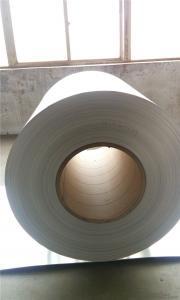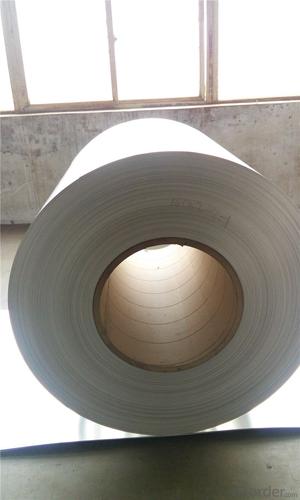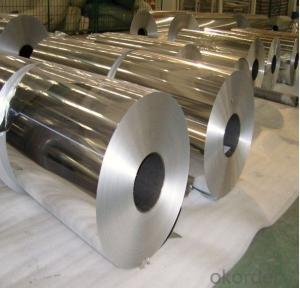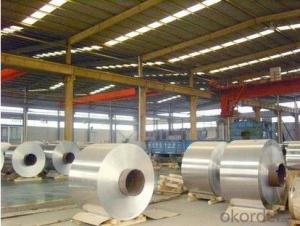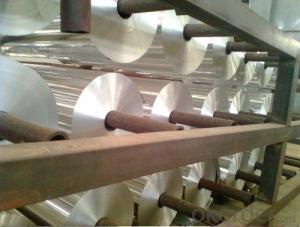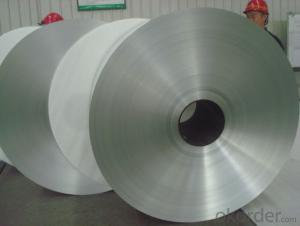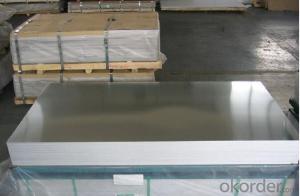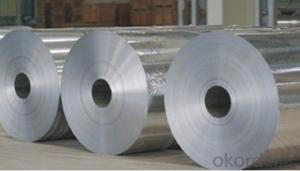Kaycan Aluminum Coil - ASTM Grade 1070 Aluminum Strips Belt for Solar
- Loading Port:
- Shanghai
- Payment Terms:
- TT OR LC
- Min Order Qty:
- 5 m.t.
- Supply Capability:
- 500 m.t./month
OKorder Service Pledge
OKorder Financial Service
You Might Also Like
Specification
ASTM Grade 1070 Aluminum Strips Belt For Solar
aluminum coil specifications:
1) Alloy :1050, 1060,1100, 3003 3004 3105 3A21 5005 5052 etc
2) Temper: O/H12/H14/H1/H18/H32/H34/H36/H38//H111/H112/H116/H321/T6/T651/T3/T351 etc
3) Thickness: 0.1mm to 6mm
4) Width:20mm to 3300mm
5)Coil weight: 100kgs to 6 tons depends on actual requirement
6)Core material: Aluminum or paper
7)Coil Inner diameter: 75mm, 150mm, 200mm, 300mm, 405mm, 505mm or as required
8) Protective film can be added
item | 3003 Aluminum coil | |
Standard | GB/T3190-2008,GB/T3880-2006,ASTM B209,JIS H4000-2006,etc | |
Material | 1060,1050,1100 3003,3103,3004,3005,3105 5052, 5454,5754 | |
Size | Thickness | 0.5mm-3.5mm |
Width | 800-1500mm | |
Weight/Roll | About 1.5MT/3MT | |
Quality control | Mill Test Certificate is supplied with shipment, Third Part Inspection is acceptable. | |
Surface | Bright, polished, hair line, brush, checkered, embossed, etc | |
Trade terms | Price term | ,FOB, CNF, CIF, etc |
Payment Term | TT,L/C | |
MOQ | 2MT | |
20 GP Capacity | About 20-25MT | |
Delivery time | 1.The products will delivery immediately after receiving the payment. 2.According to the order quantity, prompt delivery. | |
Export to | Ireland,Singapore,Indonesia,Ukraine,Spain,Canada,USA,Brazil,Thailand,Korea,Iran,India,Egypt,Kuwait, Oman,Viet Nam, South Africa, Dubai, Russia, etc | |
Package | Stick blue film→plastic film→waterproof paper→1~2 tons on a export standard pallet(corner protection) | |
Application | 1)Further making utensil.2)Solar reflective film3)The appearance of the building4)Interior decorating:ceilings,walls,etc.5)Furniture cabinets6)Elevator decoraction7)Signs,nameplate,bags making.8)Decoration inside and outside the car9)Household appliances:refrigerators,microwave ovens,audio equipment,etc.10)The consumer electronics:mobile phones,digital cameras,MP3,etc. | |
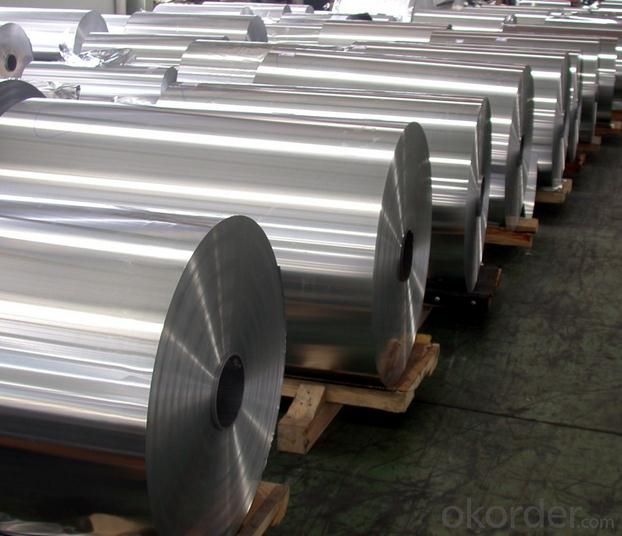
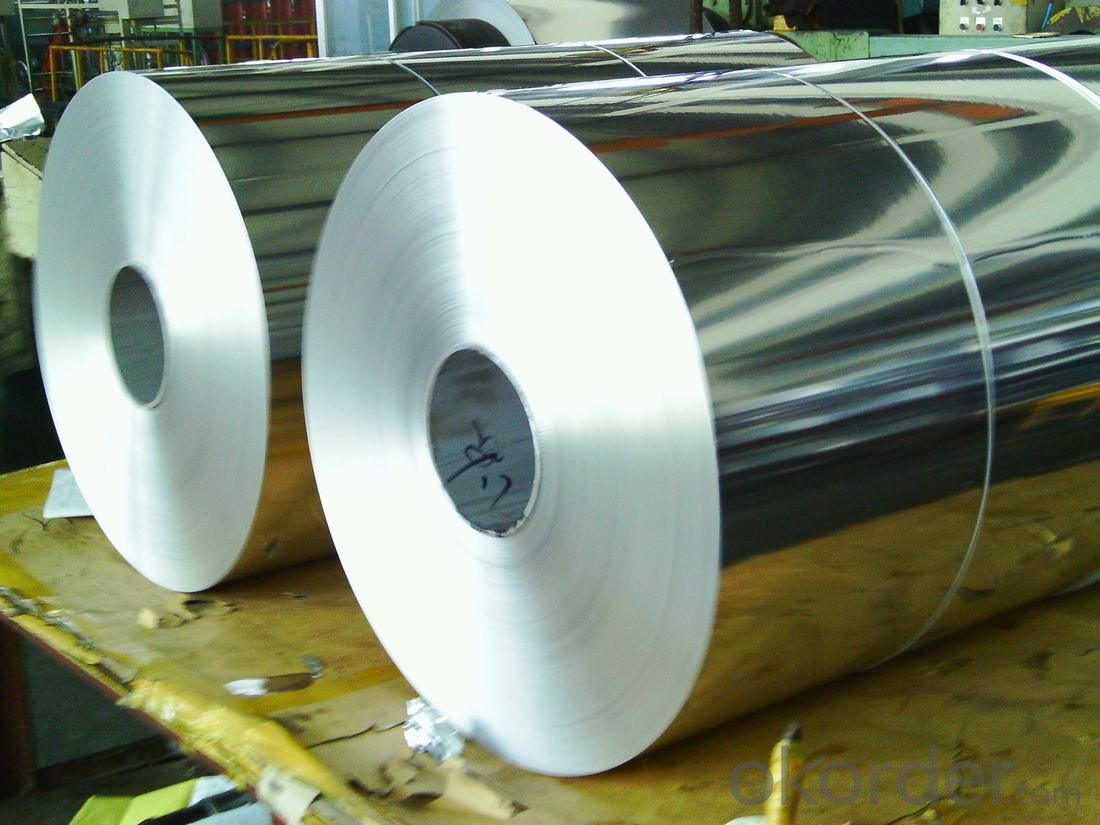
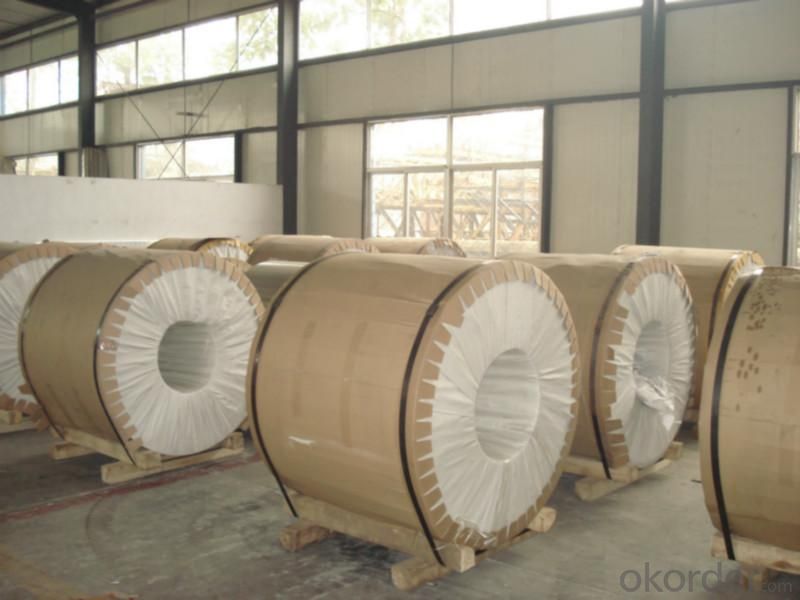
- Q: Are aluminum coils resistant to abrasion?
- Yes, aluminum coils are generally resistant to abrasion.
- Q: Why does aluminum foil burn in the microwave but not in the oven?
- It is not designed to be used in a microwave because of the high temperatures.
- Q: What is the maximum coil diameter for aluminum coils?
- The specific application and manufacturing process can cause variation in the maximum coil diameter for aluminum coils. Generally, aluminum coils have a maximum diameter ranging from 60 inches (152.4 cm) to 120 inches (304.8 cm). Factors like production equipment size, aluminum sheet thickness and width, and facility handling capabilities determine this diameter limit. To ascertain the specific maximum coil diameter for a particular aluminum coil product, it is essential to consult the manufacturer or supplier.
- Q: What is the typical elongation of aluminum coils?
- The typical elongation of aluminum coils can vary depending on several factors, such as the specific alloy and temper of the aluminum, the manufacturing process, and the intended application. However, aluminum coils generally exhibit a high elongation capability. On average, aluminum coils can have an elongation of around 5-15%, which means they can stretch or deform by this percentage without fracturing or breaking. This property is a result of the inherent ductility of aluminum, which allows it to be easily formed and shaped without losing its structural integrity. The elongation of aluminum coils plays a significant role in various industries, such as construction, automotive, and aerospace, where the material is commonly used. It allows for efficient fabrication processes, such as bending, rolling, and stamping, to create complex and precise shapes. It is important to note that the elongation of aluminum coils can be further improved through specific alloying elements and heat treatments. These processes can enhance the material's properties, making it even more suitable for demanding applications that require superior strength, ductility, and elongation capabilities. In conclusion, while the typical elongation of aluminum coils ranges from 5-15%, it is crucial to consider the specific alloy, temper, and manufacturing processes to accurately determine the elongation properties for a particular application.
- Q: Can aluminum coils be used for HVAC systems?
- Yes, aluminum coils can be used for HVAC systems. Aluminum coils are commonly used in HVAC systems as they offer several advantages over other coil materials. Firstly, aluminum is a lightweight material, which makes it easier to handle and install. This can result in lower installation costs and reduced strain on the structure of the HVAC system. Secondly, aluminum coils have excellent heat transfer properties. They efficiently transfer heat from the refrigerant to the surrounding air, which is crucial for the effective functioning of the HVAC system. Aluminum coils also have a high resistance to corrosion, which is particularly important in humid environments or areas with high levels of pollutants. Additionally, aluminum is a highly recyclable material, making it an environmentally friendly choice for HVAC systems. It can be easily recycled and reused, reducing the need for new material extraction and minimizing waste. Overall, aluminum coils are a reliable and efficient choice for HVAC systems, providing excellent heat transfer, durability, and environmental sustainability.
- Q: How do aluminum coils contribute to energy-efficient HVAC systems?
- Aluminum coils contribute to energy-efficient HVAC systems by their superior heat transfer capabilities. The high thermal conductivity of aluminum allows for efficient heat exchange, enabling the HVAC system to cool or heat the air more effectively. Additionally, aluminum coils are lightweight and corrosion-resistant, which increases the system's durability and reduces maintenance costs. Overall, using aluminum coils in HVAC systems helps optimize energy usage and improve overall efficiency.
- Q: Are there any limitations on the powder coating of aluminum coils?
- Powder coating of aluminum coils has limitations that must be taken into account. To begin with, the thickness and quality of the aluminum coil can affect the powder coating process. If the coil is too thin or of poor quality, it may not withstand the necessary heat for powder coating and could become distorted or damaged. Furthermore, proper surface preparation is essential for successful powder coating. Any contaminants or impurities, such as oils, dirt, or oxides, can hinder the adhesion of the powder coating. Thorough cleaning and pre-treatment of the surface are necessary to achieve a smooth and long-lasting coating. The size and shape of the aluminum coil can also present limitations. Coating complex shapes or intricate designs evenly can be challenging, resulting in variations in coating thickness or coverage. Special techniques or equipment may be required to ensure a uniform and consistent coating. Lastly, the choice of powder coating material can impact the limitations. Some powder coatings may not be suitable for aluminum coils due to chemical compatibility issues or inadequate adhesion properties. It is important to select a powder coating material specifically designed for use on aluminum substrates. In conclusion, while powder coating is a popular and effective method for coating aluminum coils, it is important to consider the limitations. Proper surface preparation, substrate quality, and coating material selection are critical factors in achieving a successful and durable powder coating finish.
- Q: What are the different types of surface treatments for aluminum coils?
- Aluminum coils can undergo various surface treatments to enhance their appearance, durability, and resistance to corrosion. Let's explore the different types of treatments available: 1. Anodizing: This method involves forming a protective oxide layer on the aluminum surface. Anodizing can be performed in different colors, adding an aesthetic touch to the coils. Additionally, it improves resistance against corrosion and wear. 2. Painting: High-quality paints can be applied to aluminum coils to provide both decorative and protective finishes. A wide range of colors and finishes, such as matte, gloss, or metallic, can be chosen. Painting not only enhances appearance but also offers additional protection against corrosion and UV rays. 3. Powder Coating: In this process, a dry powder is electrostatically applied to the aluminum coils and then cured under heat. Powder coating provides a durable and attractive finish that resists chipping, scratching, and fading. It comes in a variety of colors and textures. 4. Chemical Conversion Coating: This treatment involves applying a chemical solution to the aluminum surface, resulting in a thin protective layer. The conversion coating enhances corrosion resistance and provides a suitable base for subsequent paint or powder coating. 5. Brushing: Brushing is a mechanical treatment that utilizes abrasive brushes to create a textured finish on aluminum coils. This technique achieves a brushed or satin-like appearance, adding a unique aesthetic appeal. 6. Embossing: By creating raised patterns or textures on the aluminum surface, embossing enhances both visual appeal and the strength and stiffness of the coils. Embossed coils are often used in architectural and decorative applications. Ultimately, the choice of surface treatment for aluminum coils depends on specific requirements and desired appearance. Each treatment offers distinct benefits in terms of durability, corrosion resistance, and aesthetic appeal.
- Q: What benefits does anodized aluminum offer when compared to regular aluminum coils?
- <p>Anodized aluminum coils offer several advantages over standard ones. They have enhanced corrosion resistance due to the protective oxide layer formed during the anodizing process. This layer also improves wear resistance and increases the coil's durability. Anodized coils can be easily colored, providing a wide range of aesthetic options without affecting the material's performance. Additionally, the anodized surface is more resistant to scratches and can maintain a polished appearance longer. Overall, anodized aluminum coils are more robust, visually appealing, and longer-lasting compared to standard aluminum coils.</p>
- Q: I know this question is not so bright, but I am very curious why do we recycle aluminum cans? Is it that they are not biodegradable?
- Melting recycled aluminum only uses 5% of the energy that is required to produce aluminum from ore. So basically, recycling it saves energy.
Send your message to us
Kaycan Aluminum Coil - ASTM Grade 1070 Aluminum Strips Belt for Solar
- Loading Port:
- Shanghai
- Payment Terms:
- TT OR LC
- Min Order Qty:
- 5 m.t.
- Supply Capability:
- 500 m.t./month
OKorder Service Pledge
OKorder Financial Service
Similar products
Hot products
Hot Searches
Related keywords
